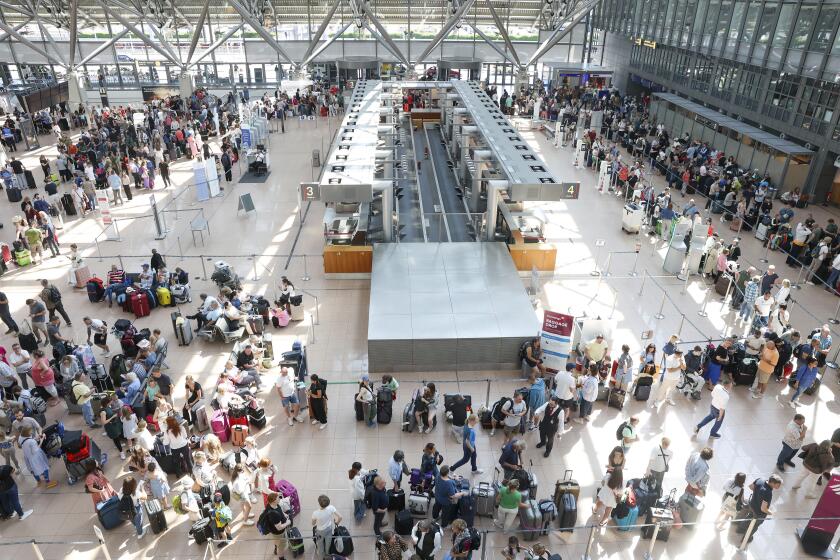Seagate Technology Announces Layoffs of 1,000 Workers : Hard Disk Drive Maker Blames Industrywide Overproduction
Seagate Technology, one of the largest makers of hard disk drives in the world, said Friday that 1,000 employees will be laid off in response to overproduction throughout the industry.
The layoffs will be spread throughout the company--including a plant in Anaheim--and reduce Seagate’s domestic work force by 20%. Employees were notified of the layoffs Friday morning, according to Robb Kundtz, vice president of administration at Seagate, which is headquartered in Scotts Valley, Calif.
Kundtz said the company was not sure whether more layoffs would be required.
“The industry imbalance between production capacity and market demand dictates that we take action to improve both our immediate financial position and future growth potential,” Seagate Chairman Alan Shugart said in a statement.
Took on Debt
Seagate was one of several hard disk drive makers that expanded production in expectation of increased demand for their products for use in personal computers, said industry analyst John T. Rossi at the brokerage firm Alex. Brown & Sons. Seagate alone took on about $287 million in debt in early 1987 to finance its expansion, he said.
But the demand for hard disk drives did not grow as fast as Seagate and others had expected. Demand has been “good,” said Kundtz. “But everybody expected it to be better than good.”
About 70% of personal computers now manufactured include hard disk drives--which allow computer users to store vast amounts of information--and that figure is not expected to increase very much, analysts said. “Essentially the industry is overbuilt, and the one thing to do is to cut back capacity,” said Rossi, who estimates that prices on some hard disk drives have fallen by 33% during the past year.
Rossi said other makers of hard disk drives--such as Quantum Corp. in Milpitas, Calif.--have already taken steps to cut production. The cutbacks, and possible mergers, will help the industry’s financial performance next year, he said.
“The industry will be back on its feet in the latter half of 1989,” Rossi said.



